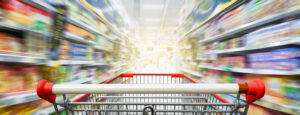
Many claim the inebriating idea of unlimited choice is an expression of a marvelous consumer culture. They might even say that the frenetic intemperance of having endless possibilities is the essence of freedom. It does not matter if people cannot exercise even a fraction of these options as long as the choices are there.
In carefree and prosperous times, this infinite choice can be enticing. All society is geared toward making this mentality dominate the culture. New technology facilitates it by making possible a wide range of options, colors and styles. Retailers have ramped up choices as online buying provides what some call an “endless aisle,” allowing product expansion without the need for physical display space. People have the illusion that they can have anything whatever, whenever and wherever they want at the click of a mouse.
The Agony of Choice Overload
However, endless consumption does have moral consequences. Few realize how harmful it can be to the person and the practice of virtue. This harm is now surfacing during the present crisis in the form of too many choices overburdening frenetic lives.
Indeed, today’s crisis is complicating people’s lives, making choices excruciating. Many are looking for ways out of the agony of making decisions. Companies are following the consumers’ search for simplicity by cutting options to maximize profits. They also need to unclog supply chains strained by the coronavirus crisis.
A Massive Trimming of Options
Thus, they are trimming the wide variety of products that cause decision paralysis. Manufacturers are cutting back on varieties of products that lockdowns are sending into shortages. They now narrow the selection of toilet paper, soda, packaged goods and other items to focus on more production.
However, fashion and non-essential items are also feeling the crunch. The Wall Street Journal reports that Coach, for example, used to produce 1,000 handbag models every year but now will make only 500. Kohl’s selection of towels has gone from 320 to 265. Marketers are looking at bestselling colors and weeding out the extravagant spectrum they used to offer. Retailers find that offering those products that sell best spares them from having to sell remnants of unpopular models at great discounts during store sales.
Unlimited Choice Causes Frustration
As times get tough, companies are learning the hard way that unlimited choice does not maximize customer satisfaction. It seems that the broader the selection is, the more confused the customer becomes. When people are under a lot of stress, decisions become more difficult and costly.
Help Remove Jesus Bath Mat on Amazon
Without reasonable limits, the proliferation of choices becomes a tyranny by overloading the individual with too many superficial options. Unlimited choice can and does easily lead to unrealistic expectations and frustration. The overwhelmed consumer freezes and makes the decision not to decide.
This paralysis reaches such a point that some people pay others to make simple decisions for them. Online concierge services exist that help people decide what to buy. Rather than spend hours researching and making up their minds, these consumers pay a monthly fee to have others do the work and present them with just three options.
A Proliferation of Bad Choices
One paradox of too many choices is the proliferation of bad ones. An individualistic culture teaches consumers that product choice is a manifestation of freedom, self-determination and abundance. Thus, people are reluctant to give up their options since it may pass for weakness or conformity.
The results of clinging to choices are hasty and bad decisions or retreating into the security of other’s choices by succumbing to fads. People then suffer from anxiety, stress and dissatisfaction—even clinical depression.
A Need to Return to Prudence
What is missing from this scenario are the cardinal virtues that should govern the use of goods and services in society. This is especially true of prudence, the cardinal virtue whereby one applies right reason to actions. Prudence lights the way and helps people make the right choices based on reasonable criteria. Its natural form introduces into economy those norms of experience, common sense, and balance that help make economy human, flexible and practical.
Satanic Christ Porn-blasphemy at Walmart — Sign Petition
In addition, this intellectual habit enables people to see and embrace what is virtuous and avoid what is not. For this reason, it is also called practical wisdom.
The Limitations of Economics
The focus of economics is limited to a very specific part of human activity. Economics describes the process of wealth creation, acquisition, production and consumption. However, these processes often involve moral actions. It is outside the competence of economists to judge, order and interpret these moral actions.
[like url=https://www.facebook.com/ReturnToOrder.org]
That is why economic developments like unlimited choice need to be subject to those higher normative sciences like ethics and morality that deal with all human actions. Only then will economy return to its proper place in society, and people will experience the tranquility of prudent choices that will improve their lives and the practice of virtue.
© Adobe Stock/nonnie192


